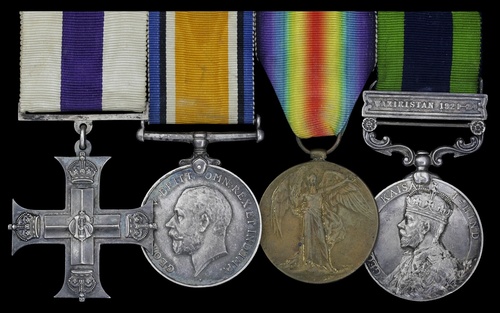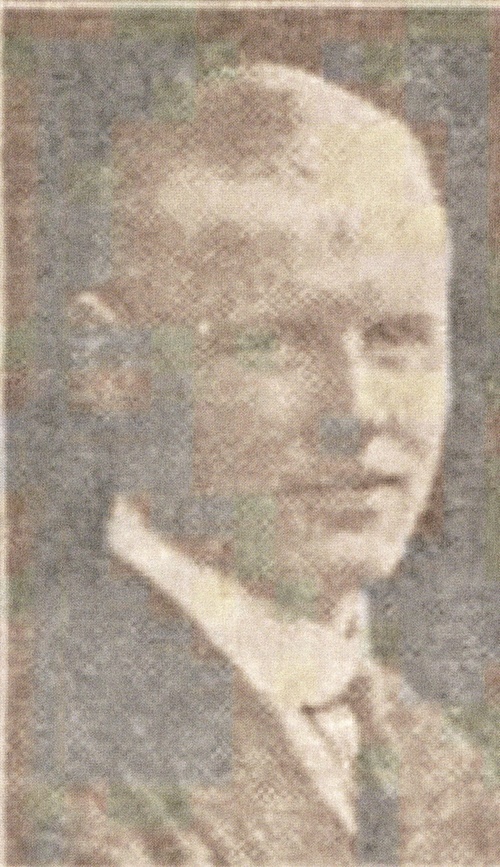Auction: 19001 - Orders, Decorations and Medals
Lot: 550
A Great War Egypt operations M.C. group of four awarded to Captain P. J. W. McClenaghan, Indian Army, who was tragically murdered by a Sepoy of his own Regiment in 1930 at Lahore
Military Cross, G.V.R., unnamed as issued, with its named case of issue; British War and Victory Medals (Lieut. P. J. W. McClenaghan); India General Service 1908-35, 1 clasp, Waziristan 1921-24 (Capt. P. J. W. McClenaghan, 4-8 Punjab R.), mounted as worn, together with official duplicate issue British War and Victory Medals (2-Lt. P. J. W. MacClenaghan), the second and third with official corrections, very fine and better (6)
M.C. London Gazette 8 March 1919 (129th Baluchis):
‘On 19 September 1918, near Sabieh, he led his company with the greatest dash and gallantry, capturing about 200 prisoners and a battery of artillery, and many machine-guns. Through his personal gallantry he set a fine example to his men.’
Percy John Warren McClenaghan was born in May 1898, the son of the Venerable Henry St. George McClenaghan and educated at the Royal School, Armagh. He was commissioned in the Indian Army in April 1916. Appointed a Company Commander in the 8th Punjab Regiment in March 1917, he witnessed active service in Mesopotamia in the period leading up to May 1918, and afterwards with the Egyptian Expeditionary Force. He was serving on attachment to the 129th Baluchis at the time of his M.C. at the Battle of Arara in September 1918. Advanced to Captain in April 1920, he witnessed further active service in the Waziristan operations of 1921-24 before spending two years in Persia, passing his interpreter's examination. It was during this period he was British Vice-Consul at Isphahan, and is noted as having been '...most popular with both Persians and Europeans.'
Returned to the Indian Army, he was serving as a Captain with the 10th/8th Punjab Regiment in late 1930. Whilst on parade at Lahore on 9 December 1930 that he was murdered by Sepoy Gurraj, who shot himself before another member of the Regiment could apprehend him (Western Daily Press 10 December 1930, refers). It appears Gurraj had a personal vendetta having failed a recent exam. McClenaghan left a widow and two young children. He is commemorated with a bronze plaque in his father's church, St Peter’s, Killaghtee, Dukineely, County Donegal; sold with copied research and portrait photograph.
Subject to 20% VAT on Buyer’s Premium. For more information please view Terms and Conditions for Buyers.
Sold for
£950







